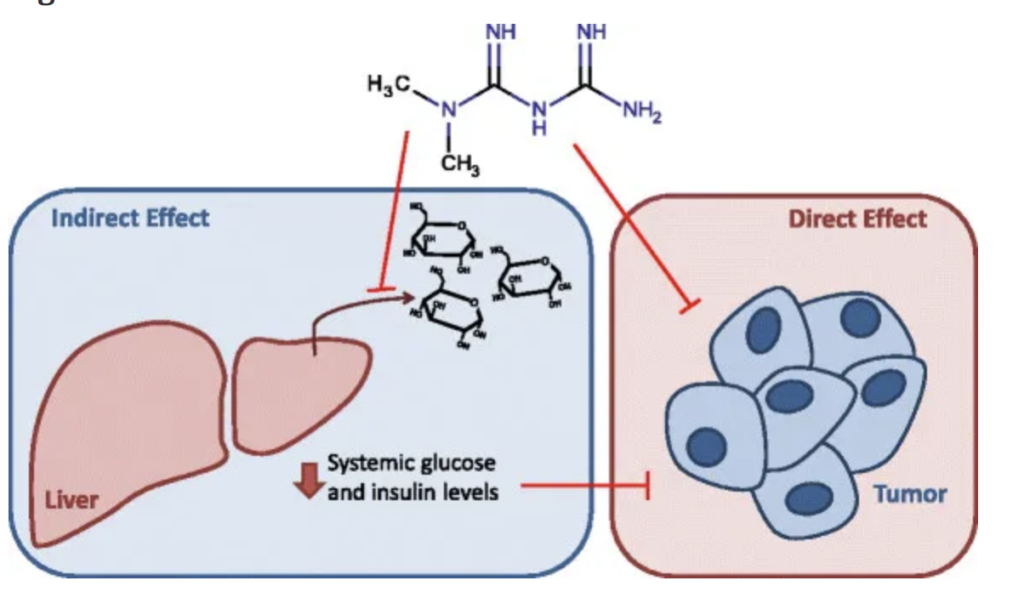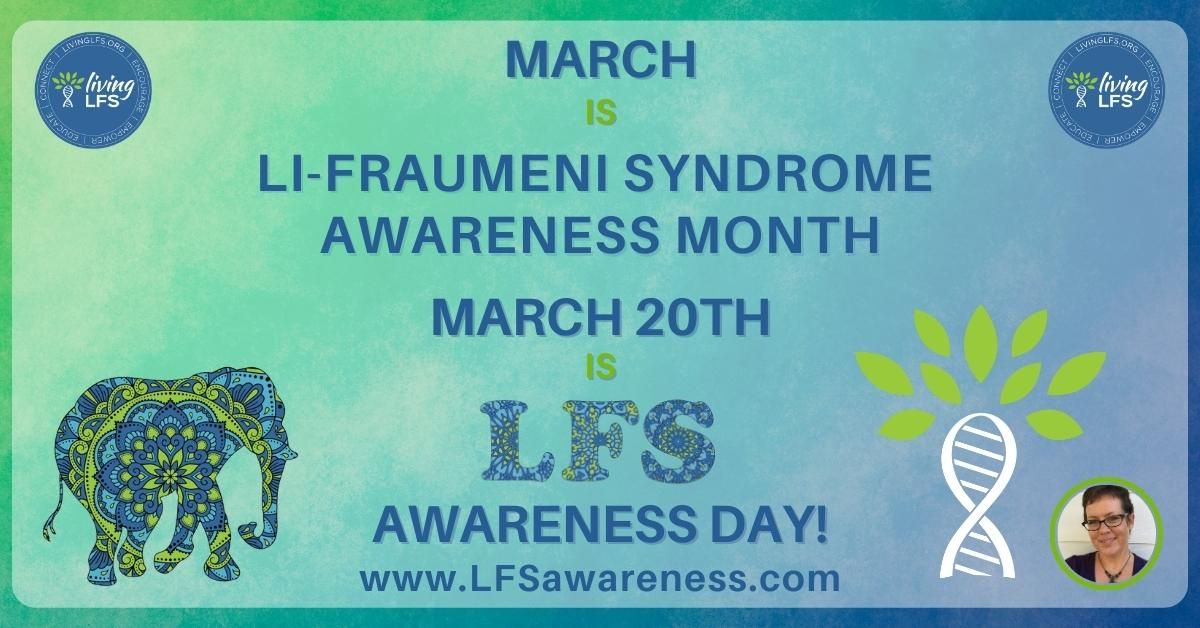What is Metformin?
Metformin is an oral medication that decreases the amount of sugar made in the liver, helps the body use sugar and recognize the insulin receptors again. First created from French Lilac in the 1920’s to help manage diabetes, Metformin was put aside when insulin was developed. Decades later, in the 50’s the French began clinical trials and Metformin eventually became widely used in Canada, the UK and in the US during the mid 90’s to treat type 2 diabetes. The exact mechanisms of Metformin aren’t understood, but as researchers learn how it works, they get a better understanding of how the body uses sugar, how cancer cells use sugar, and if this drug could help prevent tumors.

Why Metformin for Cancer?
Doctors and scientists promote eating a healthy diet and reducing sugar intake to help prevent cancer. In 2007, researchers noticed that Metformin helped selectively starve cancer cells that did not have functioning p53. When LFS mice were put on Metformin, they grew fewer tumors. In 2008, MD Anderson began clinical trials using Metformin in breast cancer treatment, and began poring over data collected from diabetics on Metformin. They found that Metformin significantly reduced the risk of pancreatic cancer in these populations, and further studies revealed that it was even more effective as treatment in combination with other chemotherapies. A pilot study using Metformin in patients with LFS showed a decrease in mitochondrial activity and growth of tumors, similar to results seen in LFS mice. This is important for many reasons. First, mice and humans are different, so it's important to show the mouse model and human studies correlate. Next, understanding the pathways and the way that the Metformin works is important. In LFS mutated cells, Metformin selectively affects how the mitochondrion work, therefore disrupting the supply of energy to cancer cells.
Sugar, Energy, and p53?
P53 is inactivated in half of all cancers, and scientists found that p53 is active in mitochondria and energy pathways. Since sugar control is an important part of energy pathways, they began closing the loop that links Metformin to p53. Studies revealed p53 as a player in energy metabolism, not just tumor suppression. This makes sense if we think in a broader picture of how cancer works. Cancer cells are multiplying with abandon, to do so, they need extra sources of energy. What’s a great source of energy- simple carbohydrates- sugar! PET Scans make use of this concept by injecting radioactive glucose and using a CT to visualize the uptake. The theory is that cancer cells need the sugar and take it up faster than normal cells- hence lighting up on the scan and indicating a potential cancerous growth.
I have LFS. Will Metformin Prevent Tumors?
Metformin prevented tumor growth in mice with LFS in studies. Tumor growth is a multi-step process. Cancer cells are tricky and like to find their way around medicine designed to stop them. The initial results are very promising, but like any medication, Metformin may not be good for everyone. It is best to discuss the risks and benefits of taking Metformin with your medical team. They know you and your medical history the best and can help determine if Metformin might benefit your current regimen.
How is Metformin Taken?
Metformin is a pill taken daily with meals. The dosage will depend on factors such as tolerability and side effects. It can be taken in doses of 500mg up to 2000mg. Most people start with 500 mg and increase the dose until it reaches therapeutic levels, usually at 1,500-2,000 mg.
What are the Side Effects of Metformin?
The most common side effects of Metformin are nausea, stomach pain, bloating, gas and diarrhea. These effects usually are temporary but some people experience severe effects. This is one of many reasons to be in communication with a medical professional when starting this medication.
Are There Risks with Taking Metformin?
There are some risks with taking Metformin. These risks are generally rare. It can increase the risk of low blood sugars, risk of kidney or liver damage and a condition called lactic acidosis. The risk of kidney damage can be increased with certain other medications and contrast agents, so it's really important to let all providers know if you are taking metformin. Also, over time Metformin can deplete B12 absorption, so it is important to monitor these levels if you continue to take Metformin.
Where Can I Get more Information on Metformin and LFS?
Here are some resources to learn more about Metformin and its use in cancer prevention.
Pilot Study of Metformin in LFS Patients: https://clinicaltrials.gov/ct2/show/NCT01981525
Safety and Tolerability of Metformin in LFS Patients: https://cancerres.aacrjournals.org/content/76/14_Supplement/CT156
Cell Stress in Mouse Models: http://www.cell-stress.com/wp-content/uploads/2019/03/2019A-Donnelly-Cell-Stress-Advanced-Pub.pdf
Metformin and LFS Mice: https://tp53.co.uk/2016/12/14/metformin-and-lfs-risk-reduction-in-mice/
A Diabetic Perspective on Metformin: https://diatribe.org/everything-you-always-wanted-know-about-metformin-were-afraid-ask
An LFS Patient's Experience in the Metformin Clinical Trial: https://livinglfs.org//participating-in-a-study-deb-shares-her-story-and-about-her-trip-to-nih/



